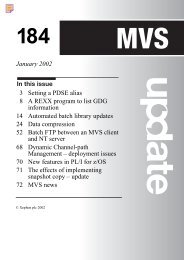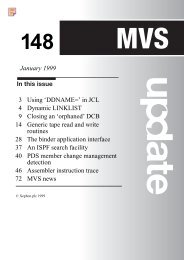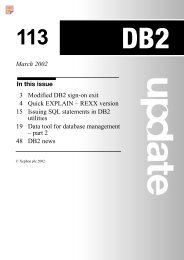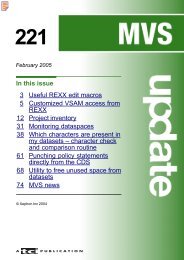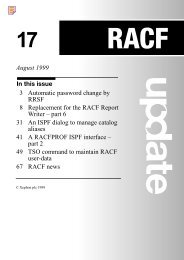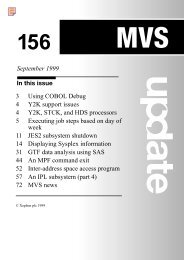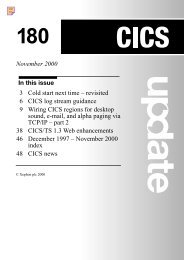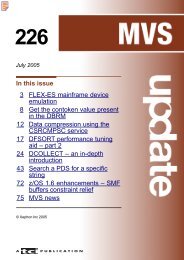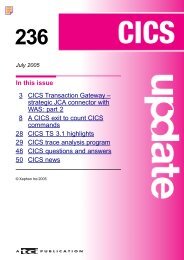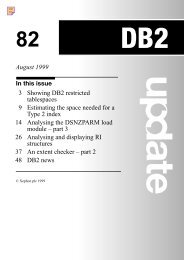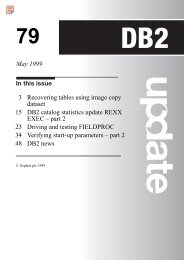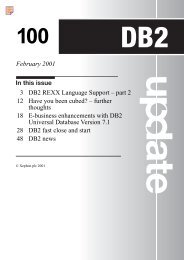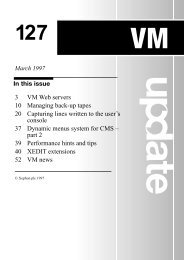MVS Jan 2005.p65 - CBT Tape
MVS Jan 2005.p65 - CBT Tape
MVS Jan 2005.p65 - CBT Tape
Create successful ePaper yourself
Turn your PDF publications into a flip-book with our unique Google optimized e-Paper software.
Multi-tasking with IBM C/C++ programs<br />
Inter- and intra-address space multi-tasking is a very powerful<br />
capability providing one of the very basic tools associated with<br />
<strong>MVS</strong> and all its successor operating systems. Multiple code<br />
paths can be active simultaneously either within the same<br />
address space or in secondary address spaces, allowing for<br />
very complex application support. This capability extends to<br />
programs written in IBM C/C++ and a number of techniques<br />
are inherently available for this purpose.<br />
INHERENT MULTI-TASKING TECHNIQUES<br />
Several techniques are available for employing multi-tasking<br />
functionality in IBM C/C++. Let’s discuss the more common<br />
techniques – fork(), spawn(), pthread_create(), and the C<br />
Multi-Tasking Facility (MTF).<br />
THE FORK() FUNCTION<br />
One of the classic multi-tasking tools in C/C++ is the fork()<br />
function call. The fork() function performs as follows.<br />
The issuer of the fork() function (the parent process) creates<br />
a new unit of work (the child process) that, for all intents and<br />
purposes, is a clone of the parent. Execution in both the parent<br />
and the child process continues from the point immediately<br />
following the fork() function call. To determine whether this is<br />
a parent or a child process, a simple check of the return code<br />
from fork() can be made. If the return code is less than 0, the<br />
fork() function call has failed and the errno variable can be<br />
examined to obtain additional information regarding the failure.<br />
If the return code is greater than 0, program execution is in the<br />
parent process and the return code value from the fork()<br />
function call is the process id (PID) of the created child<br />
process. If the return code is equal to 0, program execution is<br />
in the child process. Programmatically, this could look<br />
© 2005. Reproduction prohibited. Please inform Xephon of any infringement.<br />
27



